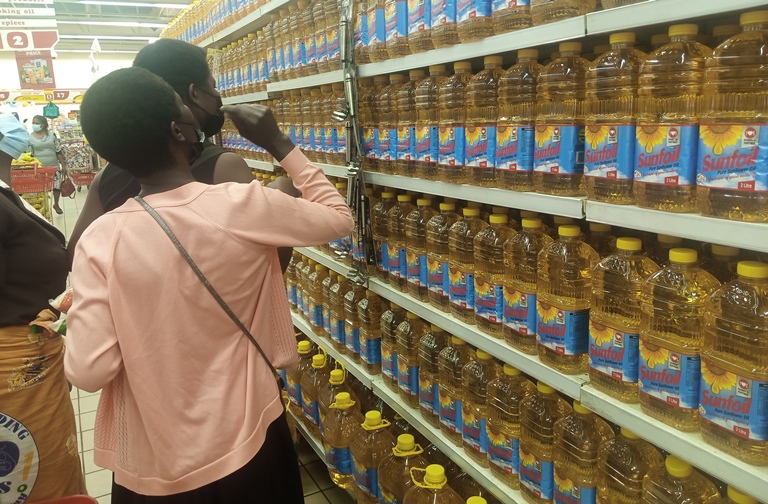Cooking oil for relief
Ministry of Industry and Trade has started issuing import licenses for cooking oil as a response to reduction in the supply by domestic producers.
The development, according to Ministry of Trade and Industry spokesperson Mayeso Msokera, seeks to address excess demand and control surging prices. But Oilseeds Producers and Processors Association fear the government’s move threatens jobs.

So far, over 15 traders have been issued the licences.
Msokera told Business Review on Tuesday that imports are allowed restrictively from time to time based on assessed demand.
He said: “We have been accepting licences on a daily basis and we shall continue to issue more licences as a short-term measure to stabilise supply and prices on the domestic market.
“The ministry is also engaging constantly with the local producers to ensure that availability of stocks and stable prices as per the released recommended prices agreed upon by both the producers and supermarkets.”
Licences are issued to registered businesses possessing a valid certificate of registration or incorporation; tax registration or tax clearance certificate and a valid identification document.
Recently, many retail shops in cities run out of locally produced cooking oil, stocking only imported brands.
The situation, according to Oilseeds Producers and Processors Association president Peter Ngoma, was a result of the acute forex shortage, which has made it difficult for producers to access raw materials.
However, in an interview on Tuesday, he observed that it is government’s prerogative to issue the import permits.
Ngoma said: “We only wonder how the importers will be able to get forex when the same is not available for local manufacturers and source cooking oil cheaply when all the exporting countries have increased prices. We also wonder how this is going to promote the local farmers who grow oilseeds, etc.”
However, Msokera said the move is a short-term measure to deal with the current supply gap as the ministry’s long-term strategy is to encourage more investment into the oil seeds sector, which is currently emerging strongly due to its high economic spillovers and downstream products such as cooking oil and animal cakes.
In a separate interview, Consumers Association of Malawi executive director John Kapito said getting more suppliers can influence competetion.
He said: “Unfortunately, if the source of the main supplier is the same, it doesn’t benefit the consumers and Malawi being a small market, it reduces the economies of scale where bulk purchases will be reduced by the importers and in the end, paying high import prices.
“What the ministry should avoid is to be reactionary and identify the key reasons why prices of cooking oil continue rising both locally and globally otherwise, it will be a waste of efforts.”
Last month, Ministry of Trade and Industry indicated that government removed the 16.5 percent VAT on cooking oil as one of its interventions towards reducing rising prices of cooking oil.
On the other hand, Minister of Finance and Economic Affairs Sosten Gwengwe announced the removal of 16.5 percent VAT on cooking oil in his 2022/23 National Budget Statement, a move that followed a long battle between government and cooking oil producers over prices.
Last year, cooking oil producers argued that introduction of VAT contributed to the skyrocketing cooking oil prices while government said that their claim had no basis because they were claiming input VAT, as such, consumers were supposed to be spared.
VAT on cooking oil, which was re-introduced in the 2020/21 financial year, saw cooking oil producers increasing the price of the commodity to levels consumers deemed unbearable.
This was despite assurance from the Treasury that cooking oil manufacturers would not raise prices because the tax measure would enable them to claim input VAT- tax added to the price when one purchases goods or services liable to VAT.





